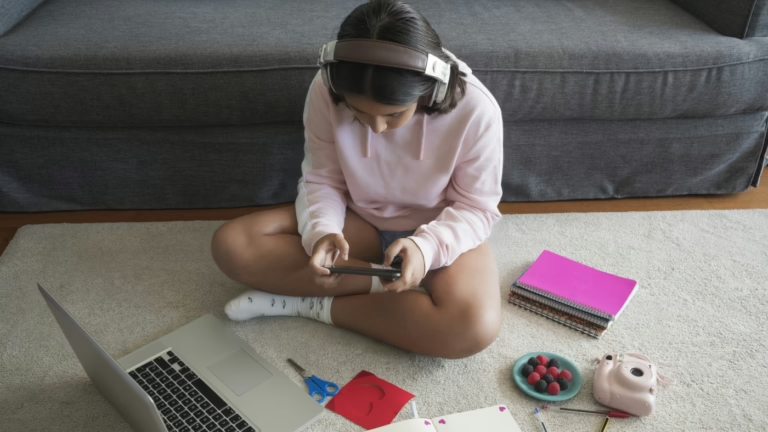Recent research reveals that preteens who engage heavily with social media tend to score lower on assessments of reading, vocabulary, and memory during early adolescence compared to peers with minimal or no social media exposure.
Published in JAMA, this study highlights a concerning association between social media consumption and diminished cognitive performance among teenagers.
Psychologist Mitch Prinstein from the University of North Carolina at Chapel Hill, who was not part of the research team, describes the findings as “highly significant,” emphasizing the growing challenges educators observe in students’ ability to concentrate and absorb information in the digital age.
While much of the prior focus has been on social media’s effects on youth mental health, lead author and pediatrician Jason Nagata from the University of California, San Francisco, stresses the importance of understanding how social media use during school hours specifically impacts academic learning, especially as many schools debate implementing phone restrictions.
Examining Reading and Memory Skills
To explore this, Nagata and colleagues analyzed data from the extensive Adolescent Brain Cognitive Development (ABCD) Study, which tracks thousands of children through adolescence to monitor brain development.
The study collects annual reports on social media habits and biennial cognitive tests, including assessments of reading and memory. For this analysis, data from over 6,000 children aged 9 to 10 were examined as they progressed into early adolescence.
Participants were divided into three categories based on their social media usage trends: approximately 58% maintained little to no social media engagement; 37% increased their use to about one hour daily by age 13; and a smaller group of 6% escalated to three or more hours per day by the same age.
Impact of Social Media Exposure
All groups underwent cognitive testing at the study’s start and again in early adolescence. Tests included an oral reading recognition task to evaluate vocabulary and reading skills, and a picture vocabulary test requiring children to match images with spoken words.
Nagata notes that even those in the moderate-use group-spending roughly an hour daily on social media-scored 1 to 2 points lower on reading and memory tests compared to non-users. The high-use group exhibited an even greater decline, scoring 4 to 5 points lower.
Psychologist Sheri Madigan from the University of Calgary, who authored an editorial accompanying the study, refers to this as a “dosage effect,” where cognitive performance worsens with increased social media exposure, even at relatively low levels.
Though the point differences may appear modest, Prinstein explains that these small early changes can set children on divergent developmental paths, potentially leading to significant academic disparities over several years.
Moreover, Nagata points out that social media use tends to rise as adolescents grow older, suggesting that cognitive gaps may widen further during mid to late teenage years.
Previous analyses from the ABCD Study by Nagata’s team revealed that nearly two-thirds of children begin using social media before age 13, often managing multiple accounts. They also identified signs of smartphone addiction among 10- to 14-year-olds, with many losing track of usage time and some reporting that social media negatively affects their school performance.
Adolescence: A Crucial Window for Brain Growth
Prinstein emphasizes that adolescence is a vital phase for brain maturation, marked by significant neural reorganization influenced by experiences.
His recent work shows that heavy social media users develop heightened sensitivity to the instant feedback mechanisms of these platforms, such as likes and comments, which may divert brain development away from other essential cognitive functions.
This neurological adaptation helps explain why increased social media engagement correlates with lower performance in traditional learning tasks, as observed in the new study.
Madigan advocates for policy measures, including stricter age restrictions on social media platforms, to protect young users. She highlights recent moves by countries like Denmark, which plans to ban social media use for those under 15, and Australia, which will require companies to prevent under-16s from maintaining accounts starting December 2025.
She hopes these initiatives will inspire similar actions worldwide, ultimately benefiting children’s cognitive and educational outcomes.






















